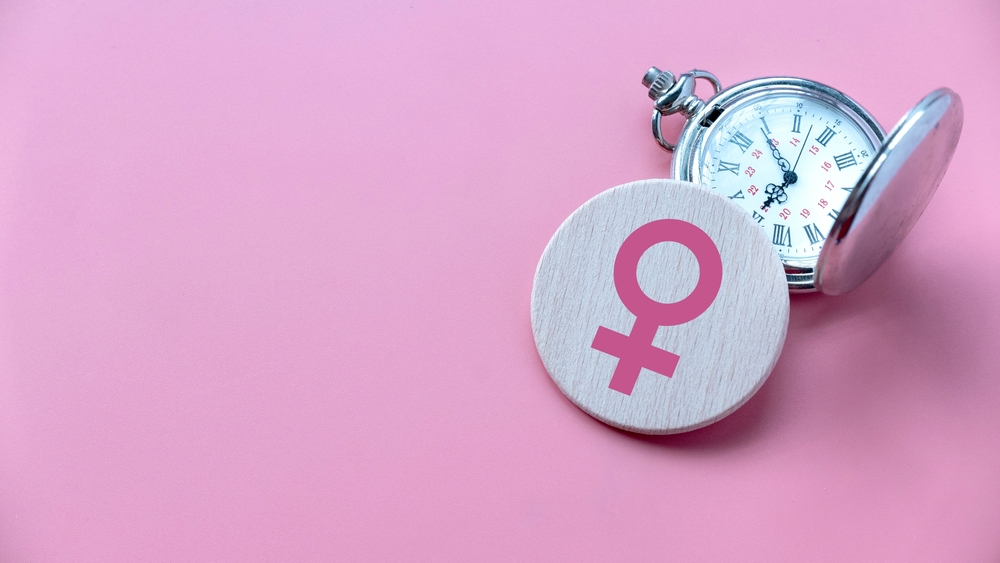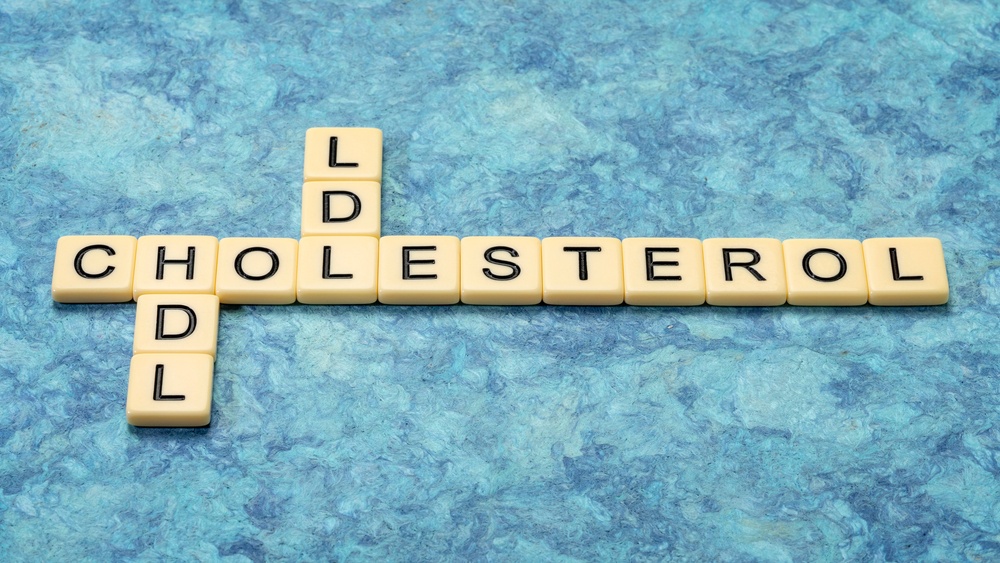- Declining estrogen, progesterone, and thyroid function during menopause disrupt how the body regulates cholesterol.
- HDL, LDL, and triglycerides each play a different role in heart health, and balance matters more than just lowering one number.
- After menopause, LDL and triglyceride levels often rise while HDL can drop, raising cardiovascular risk if left unaddressed.
- Genetics, inactivity, poor diet, and other conditions can intensify menopause-related cholesterol changes.
- Midlife is the time for regular cholesterol and hormone screenings to catch changes early and guide effective treatment.
- Exercise, fiber, and healthy fats support cholesterol balance, but lifestyle changes alone rarely correct the hormonal root cause.
- Bioidentical hormone therapy restores balance, improving cholesterol profiles while protecting long-term heart health.
- Statins treat a number, not the cause, often come with side effects like fatigue, muscle pain, and blood sugar changes, undermine proactive health, don't improve quality of life, and better solutions exist through hormone and thyroid optimization.
Menopause is a natural part of aging, but it can bring unexpected changes to your health, including to your cholesterol levels. As estrogen declines, your body's ability to manage cholesterol shifts, potentially raising your risk for heart disease.
If you've noticed changes in your numbers, or are simply planning ahead, understanding the connection between menopause and cholesterol is key. In this article, we'll break it all down: what's happening in your body, why it matters, and how to take control of your heart health during this new chapter.

What Happens During Menopause?
Menopause marks the end of a woman's reproductive years and is officially diagnosed after 12 consecutive months without a menstrual period. But the transition isn't sudden.
Rather, it's a gradual process that unfolds over several years, often beginning in the mid-40s with perimenopause. During this time, hormone levels, especially estrogen and progesterone, begin to fluctuate, causing a range of symptoms like hot flashes, irregular periods, sleep disturbances, and mood swings.
As you move through perimenopause into menopause and eventually postmenopause, estrogen levels drop significantly. This hormonal decline affects much more than your reproductive system. Estrogen plays a key role in many body functions, including how your body processes cholesterol. It helps keep blood vessels flexible and supports a healthy balance between “good†HDL and “bad†LDL cholesterol (1).
Without estrogen's protective effects, your cardiovascular system becomes more vulnerable. You may also experience changes in body fat distribution (often more around the abdomen), metabolism, and insulin sensitivity, all of which can influence cholesterol levels and overall heart health.
Cholesterol 101
Before diving into how menopause affects your cholesterol, let's get clear on what cholesterol actually is—and why it matters. Cholesterol is a waxy, fat-like substance found in every cell of your body.
It's essential for making hormones, vitamin D, and substances that help you digest food. Your body makes all the cholesterol it needs, but you also get some from food, especially animal-based products.
There are three main types of cholesterol-related numbers your doctor will check during a blood test:
- LDL (Low-Density Lipoprotein): LDL is often referred to as “bad†cholesterol. When LDL levels are too high, cholesterol can build up in the walls of your arteries, leading to plaque formation, which increases the risk of heart attack and stroke.
- HDL (High-Density Lipoprotein): HDL is known as “good†cholesterol. HDL helps remove excess cholesterol from the bloodstream by transporting it to the liver for elimination. Higher HDL levels are generally better.
- Triglycerides: These are fats in the blood that your body uses for energy. High levels are often linked to weight gain, poor diet, and insulin resistance, and can increase heart disease risk.
Healthy cholesterol levels vary depending on age and health status, but as a general guideline, LDL should be low, HDL should be high, and triglycerides should stay within a moderate range.
How Menopause Affects Cholesterol Levels
As estrogen levels decline during menopause, one of the less obvious, but critically important, changes that can occur is a shift in your cholesterol profile.
Estrogen has protective effects on the cardiovascular system. It helps maintain flexible blood vessels, supports healthy blood flow, and plays a role in regulating cholesterol production and breakdown. So, when estrogen levels drop, these benefits fade.
One of the most common changes during and after menopause is a rise in LDL (bad cholesterol). This type of cholesterol contributes to plaque buildup in the arteries, increasing your risk for heart disease and stroke.
At the same time, HDL (good cholesterol) may decrease, which means your body becomes less efficient at clearing out excess cholesterol from your bloodstream. Additionally, triglycerides often go up, especially if weight gain or insulin resistance develops alongside menopause (2).
Many women also notice a shift in body fat distribution, more fat tends to accumulate around the abdomen rather than the hips and thighs. This central weight gain is closely linked with higher cholesterol and increased cardiovascular risk.
These changes reflect a real shift in how your body handles fats and sugars. While menopause itself doesn't cause heart disease, it can tip the balance in that direction if cholesterol and other risk factors aren't monitored and managed.
The good news? These trends can be reversed or controlled with the right lifestyle adjustments and medical support.
Risk Factors That Compound the Impact
While the hormonal shifts of menopause can naturally raise cholesterol levels, several other risk factors can make the situation worse. If you're heading into midlife with certain habits, health conditions, or genetic traits, the impact of menopause on your cholesterol may be even more pronounced.
Family History
Family history plays a big role. If your parents or siblings have high cholesterol or a history of heart disease, your risk increases, especially after menopause, when estrogen's protective effects wear off.
Lifestyle Factors
Lifestyle factors also contribute. A diet high in saturated fats, trans fats, and added sugars can lead to elevated LDL and triglycerides. Not getting enough physical activity, particularly aerobic exercise, means missed opportunities to raise your HDL (good cholesterol) and manage your weight.
Additionally, smoking lowers HDL and also damages blood vessels, accelerating plaque buildup.
Weight Gain
Weight gain during and after menopause, especially around the abdomen, is another red flag. Belly fat is closely tied to insulin resistance and higher cholesterol levels. If you're also dealing with conditions like high blood pressure, type 2 diabetes, hypothyroidism, or PCOS, your risk for elevated cholesterol and heart disease increases even more.
Keep in mind: These compounding factors don't mean you're destined for heart trouble—they just signal it's time to pay attention. Knowing your risk allows you to take proactive steps early, whether that means changing your habits, adjusting your diet, or working with your doctor to stay on top of your numbers.
Recognizing The Signs: When To Get Tested
High cholesterol doesn't usually cause noticeable symptoms, which is why it's often called a “silent†risk factor for heart disease. You could be feeling perfectly fine while your cholesterol levels slowly creep into dangerous territory. That's why regular testing, especially during and after menopause, is so important.
Experts recommend that all adults begin routine cholesterol screenings around age 20 and continue every 4-6 years if levels remain normal. But once you reach your 40s or enter perimenopause, it's wise to have your levels checked more frequently: about every 1-2 years. After menopause, annual testing may be necessary, particularly if you have additional risk factors like family history, high blood pressure, diabetes, or excess weight.
A standard cholesterol test, often called a lipid panel, measures your total cholesterol, LDL (bad cholesterol), HDL (good cholesterol), and triglycerides. Your doctor might also look at your non-HDL cholesterol (total cholesterol minus HDL) and cholesterol ratio to get a more complete picture. In some cases, they may recommend additional tests that measure inflammation markers, such as C-reactive protein (CRP), or use calculators to estimate your 10-year heart disease risk.
If you've noticed weight gain, higher blood pressure, fatigue, or mood changes during menopause, it's worth checking your cholesterol, even if you haven't before. These signs might not scream “heart health,†but they often overlap with metabolic changes tied to your lipid levels. Early detection gives you more control and time to make changes that can protect your heart long term.

How To Lower Cholesterol During Menopause
The good news? You have a lot of power when it comes to managing cholesterol, especially through small, consistent lifestyle changes. After menopause, these tweaks can make a big difference not just in your numbers, but in how you feel overall.
Improve Your Diet
Start with your plate. Focus on a heart-healthy diet rich in fiber, lean proteins, healthy fats, and plenty of colorful fruits and vegetables.
Oats, beans, nuts, olive oil, flaxseeds, and fatty fish like salmon are particularly effective at improving cholesterol levels. Cut back on saturated fats (like those found in red meat and butter) and eliminate trans fats entirely—simply check food labels for “partially hydrogenated oils.†Reducing added sugar and processed carbs also helps balance triglycerides.
Get Moving
Aim for at least 150 minutes of moderate aerobic activity each week. Walking, swimming, dancing, or cycling all count. Add strength training twice a week to build muscle, which helps with metabolism and blood sugar regulation.
Watch Your Weight
Manage your weight, especially belly fat. Even losing 5-10% of your body weight can lead to noticeable improvements in LDL and triglycerides.
Kick The Bad Habits
Limit alcohol, quit smoking, and manage stress. These all play roles in your overall cardiovascular health. These lifestyle changes don't need to happen all at once. Start with one or two small shifts, like taking a daily walk or switching to olive oil, and build from there. The key is consistency and staying connected to how these choices support your long-term well-being.
Medications For Managing Cholesterol
If lifestyle changes aren't enough to bring your cholesterol into a healthy range—especially after menopause—your doctor may recommend medication. This is common and nothing to feel discouraged about. In fact, the right medication can work alongside your healthy habits to protect your heart and reduce long-term risks.
Some commonly prescribed cholesterol-lowering medications include:
- Statins: These are the most widely used and work by reducing the amount of cholesterol your liver produces. They're particularly effective at lowering LDL.
- Fibrates: These primarily lower triglycerides and may modestly increase HDL.
- PCSK9 Inhibitors: Injectable drugs that dramatically lower LDL levels, often used when statins aren't enough or aren't tolerated.
- Ezetimibe: Helps block the absorption of cholesterol from the foods you eat and is sometimes combined with a statin.
Hormone replacement therapy (HRT) may also improve cholesterol levels in some women by increasing HDL and decreasing LDL. However, HRT is not prescribed solely to treat cholesterol, it's mainly used for relieving menopausal symptoms. It's not appropriate for everyone, especially those with a history of blood clots, stroke, or certain cancers.
Always discuss your full health picture with your doctor to determine the safest and most effective treatment plan. Medications, when needed, can be an important tool in your overall cholesterol and heart health strategy.
Final Thoughts
Menopause marks a major shift in your body, and while many of the changes are expected, like hot flashes or mood swings, others, like rising cholesterol, can sneak up quietly.
The drop in estrogen can impact how your body processes fats, increasing your risk for high LDL, low HDL, and higher triglycerides. Combined with other factors like weight gain, stress, and family history, it's clear why midlife is such a crucial time to pay attention to your heart health.
The empowering news? You're not helpless in this. From the food you eat to how you move your body and manage your stress, small lifestyle changes can add up to real improvements. And if you need medication or hormone support, those tools are available too—no shame, just smart choices.
At Fem Excel, we understand the hormonal shifts you're facing and offer personalized, science-backed support to help you navigate menopause with confidence. Whether you're managing cholesterol, balancing hormones, or just looking for guidance, we're here for you.
Visit Fem Excel today to learn how our expert team can help you take charge of your health and thrive through menopause and beyond.
References:
(1) Ryczkowska K, Adach W, Janikowski K, Banach M, Bielecka-Dabrowa A. Menopause and women's cardiovascular health: is it really an obvious relationship? Arch Med Sci. 2022 Dec 10;19(2):458-466. doi: 10.5114/aoms/157308. PMID: 37034510; PMCID: PMC10074318.
(2) Inaraja V, Thuissard I, Andreu-Vazquez C, Jodar E. Lipid profile changes during the menopausal transition. Menopause. 2020 Jul;27(7):780-787. doi: 10.1097/GME.0000000000001532. PMID: 32187130.





